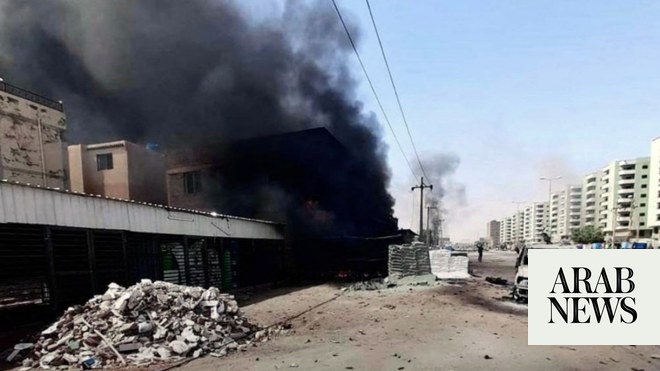
Twenty-five years ago, the world watched silently as news reports from Africa revealed that approximately 800,000 Rwandans from the minority Tutsi clan had been massacred in a matter of three months. Even children, who could not tell the difference between Tutsi and Hutu, were not spared as the UN forces in the country were unable to stop the violence, protect innocent civilians or even call the world to action.
Fast forward to 2019 and Syrians in their millions are taking refuge in neighboring countries and millions more are displaced internally after rebelling against Bashar Assad’s family rule. Villages and towns up and down the country have been reduced to rubble by the regime’s forces, leaving more than half a million dead.
Last month, the war in Syria entered its ninth year with one positive note — the defeat of Daesh, or at least the end of this heinous criminal band’s claim of a self-styled state. But what will happen to the Syrians? And how will the country be reconciled? A transition to a peaceful and coexistent Syria remains elusive despite scores of UN resolutions and a Geneva peace process, other talks in Vienna, and a third process championed by the allies of Assad called the Astana process.
In both Rwanda and Syria, the world let down civilians and its international multilateral duty, or “responsibility to protect” (R2P).
Rwanda’s genocide was ignited on April 6, 1994, when a plane carrying President Juvenal Habyarimana was shot down and crashed in the capital, Kigali, killing the Rwandan leader, a Hutu. The Tutsi minority was blamed for the crash and there followed a killing spree of revenge attacks across the country of 12 million people.
The commemoration of the genocide will last 100 days, exactly as long as the killing went on for in 1994, wiping out more than 70 percent of the ethnic Tutsi. This will also be an opportunity for the country to show that peace can reign again among its people.
The Rwandan story of the early 1990s shocked the world as much as the killing fields in the Syrian towns ravaged by regime bombardment and its use of cIn post-genocide Rwanda, the world tried to undo its previous failures. The UN, and especially its peacekeeping operation — led in the mid-1990s by none other than Kofi Annan — underwent huge reforms and led to the world introducing R2P at a global summit in 2005. From 2014, that is three years after the conflict in Syria started, the Security Council evoked in a dozen or so resolutions and presidential statements for the R2P, but to no avail. Every resolution that contained the wording that it is “the primary responsibility of the Syrian authorities to protect the population of Syria” was not even worth the paper it was inked on.
The world was supposed to have come together, on paper at least, as all 190-plus signatories to the UN Charter have signed the R2P doctrine in the hope of protecting civilians from instances of genocide, war crimes, ethnic cleansing and crimes against humanity.
However, eight years after the start of the Syrian war, the world has clearly failed the Syrian people and failed in its responsibility to protect for various reasons. But all such excuses don’t count now, as the world stands divided and unconcerned as to how to reconcile the regime and the people in a way that would allow Syrians to return to their homes.
Meanwhile, not all Rwandans think reconciliation has succeeded. Some claim that peace and reconciliation was driven by the government and international charities.
Ethnic reconciliation is a cornerstone of the rule of Paul Kagame, Rwanda’s de facto leader since the genocide ended in 1994 and the country’s president since 2000, who is credited with bringing stability, economic growth, improved health and education to the country.
The less fortunate Syrians, let down by everyone in the region and beyond, are left to their own devices in trying to negotiate their families’ return with the help of local, unguaranteed assurances of safety, while some have had to denounce land and property.
The Assad regime, though weakened dramatically, as was indicated by the president’s muffled response to the US recognition of Israeli sovereignty over the occupied Golan Heights, is still being propped up by Iran and Russia. Assad and his allies remain unwilling to compromise or agree to any form of power transition that could put the lid on the conflict and start afresh, potentially with a process backed by the international community that might see Syria rebuilt.
Such an impasse is once again showing how defunct the rule of law is in today’s world. Just as they failed in Rwanda 25 years ago, international organizations such as the UN have been rendered powerless in a world full of discord and rife with populists and exclusionist rhetoric.
The quarter-century separating the atrocities in Rwanda and Syria is indicative that all our multilateral talking shops have withered in the winds of fear. The world community failed to act in the 1990s and is unlikely to evoke the R2P to find solutions in Syria and a dozen other conflict areas in the Middle East and beyond.
Mohamed Chebaro is a British-Lebanese journalist with more than 25 years’ experience covering war, terrorism, defense, current affairs and diplomacy. He is also a media consultant and trainer.









